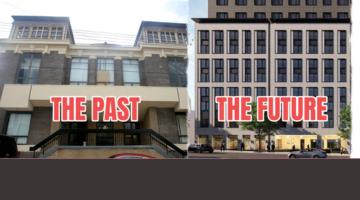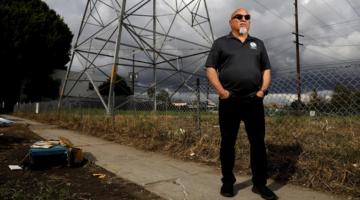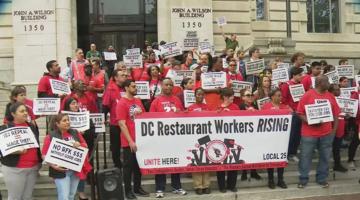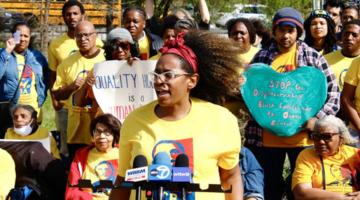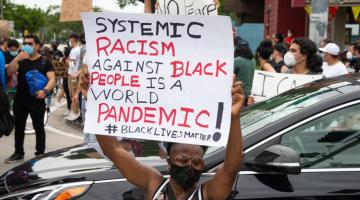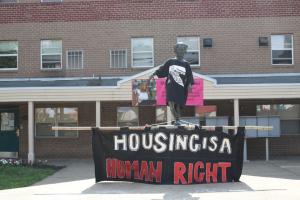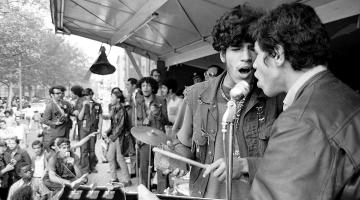Related Stories
Jon Jeter
A forgotten history of cross-racial labor solidarity in 1890s New Orleans offered a glimpse of a potential future.
Imani Nile
A majority Black city in Westchester County, a northern suburb of New York City, suffers from years of Black political misleadership and is now
Adam Mahoney
America’s gentrified neighborhoods have lost 500,000 Black people, while gaining residents of every other race, a study finds.
Jon Jeter
Muriel Bowser is proving that Black faces in high places don’t break systems, they grease them.
Maxwell Evans
Community residents say that Chicago's City Council should pass a slate of housing protections centered on low-income renters instead of advanc
Jon Jeter
Systemic racism and reactionary violence are embedded into the foundation of the US political and social system, despite false claims of any so
Jon Jeter
Washington DC was once known as Chocolate City. After years of gentrification Black residents are now a minority of the population.
Ernest Owens
The traumatizing clearing of the University City Townhome encampment in West Philadelphia symbolizes the ongoing racial injustice of gentr
Margaret Kimberley, BAR Executive Editor and Senior Columnist
The Obama Presidential Center will inevitably displace a working class Black community in Chicago.
Ann Garrison, BAR Contributing Editor
A fact-based, crowd-funded film on urban devastation and gang warfare in the South Bronx packs a bigger political punch than the cult classic,
More Stories
- Margaret Kimberley, BAR Executive Editor and Senior ColumnistThe power structure in the U.S. can be boiled down to a system of might, and white, making right. Donald Trump has exposed its rotten foundations and the two-faced collaborators who keep it running.
- Editors, The Black Agenda Review“There has been divide and rule in the modern Caribbean with a vengeance, all in the interest of US hegemony over the economic, military and political destiny of the Caribbean as a whole.”
- Ann Garrison, BAR Contributing EditorThese are remarks prepared for a 09/16/25 Covert Action webinar on Neocolonialism in Africa.
- Jon JeterThe assassination of a far-right demagogue raises the question: when does 'free speech' become a tool for inciting violence? Nations like South Africa and Brazil have decided that some speech is not…
- Anthony Karefa Rogers-Wright“The youth are getting restless. I can't hear you, Let them hear you all the way to Washington, The youth are getting restless, Own creation, The Youth are Getting Restless, And once again a nation,…


